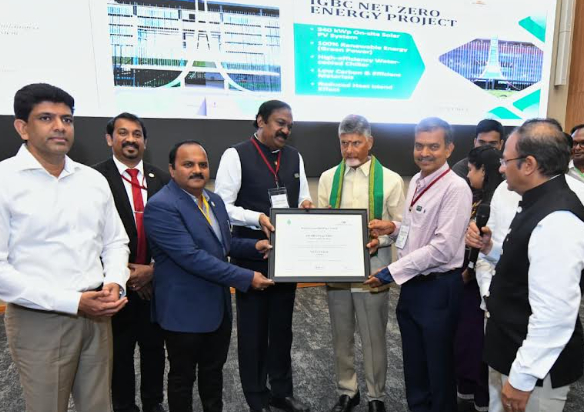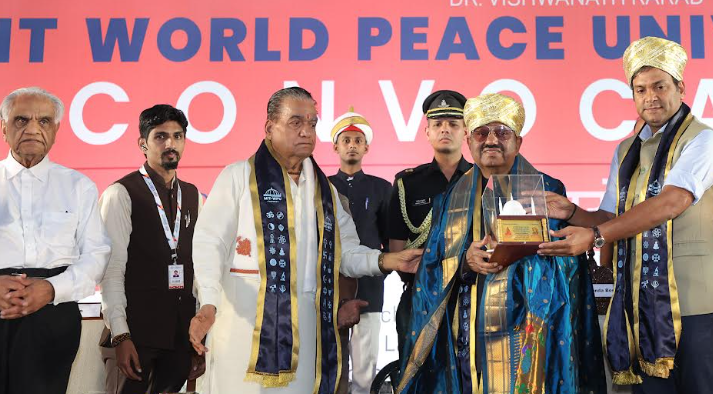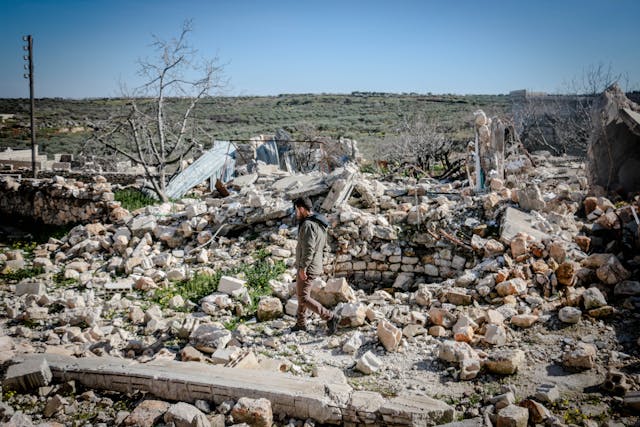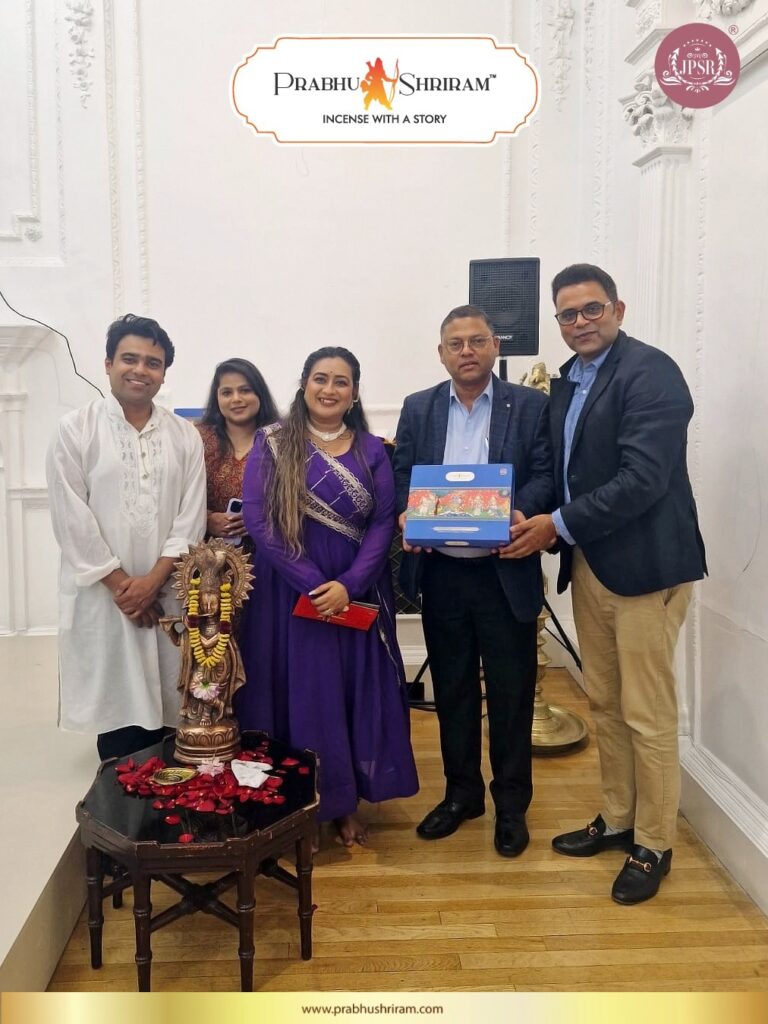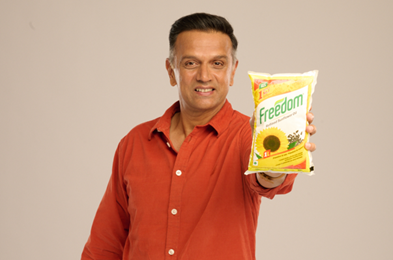International Solar Alliance to host the Eighth Session of the ISA Assembly from 27-30 October in India
Bengaluru , India,14th October 2025: The Eighth Session of the International Solar Alliance (ISA) Assembly, scheduled from 27 to 30 October 2025 at Bharat Mandapam, New Delhi, will bring the world together under one Sun, one vision, and one shared commitment to solar energy.
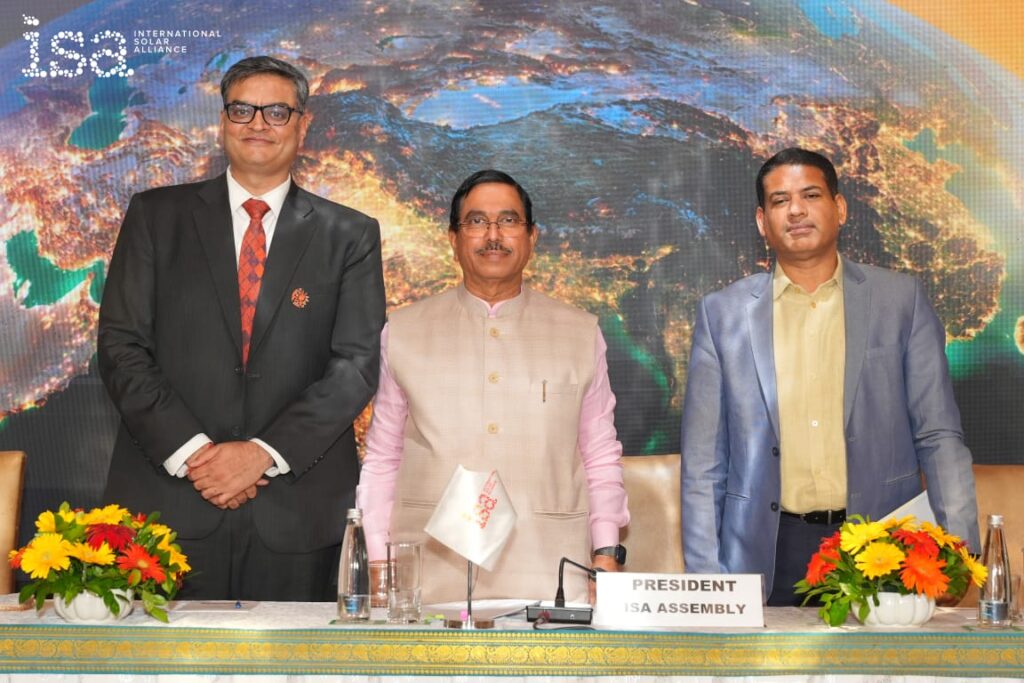
Launched by India and France at COP21 in Paris, ISA is the largest treaty-based intergovernmental organisation from the Global South, bringing together 124 Member and Signatory Countries. This high-level ministerial gathering comes weeks ahead of COP30 in Brazil, shaping priorities for scaling solar energy, unlocking transformative finance, charting technology and policy roadmaps, and building skill ecosystems to accelerate a just and inclusive energy transition.
At the curtain-raiser today, Shri Pralhad Joshi, Minister of New and Renewable Energy, GoI, & President of the ISA Assembly, said, “Owing to its clear vision and the consistent policies, India achieved its renewable energy targets five years ahead of the schedule, crossing the 50% mark in overall installed electricity capacity from non-fossil resources. Today with approximately 125 GW of solar capacity, India is the world’s third largest solar producer. This progress shows how the national ambition can translate to meaningful change at the local level. It is because our success story is more than just numbers; it is about the people. We have seen firsthand how decentralised solar transforms lives, bring light to rural homes, powers local health centres and gives new tools to our farmers. With PM Surya Ghar – Muft Bijli Yojana, more than 20 lakh households are benefiting from solar power.”
He further added, “Under the PM-KUSUM scheme, we are taking this transformation to the heartland of India. The three components of the scheme target the installation of 10 gigawatts of small solar plants; support 1.4 million off-grid solar pumps; and solarise 3.5 million grid-connected agricultural pumps. Together, these efforts are ensuring that clean energy reaches the last mile. It is this combination of scale and inclusiveness that defines India’s energy transition.”
Shri Santosh Kumar Sarangi, Secretary, Ministry of New and Renewable Energy, GoI, noted, “Today we are the third largest in solar power, fourth largest in wind power and overall, we are now the third largest renewable energy installation in the world. Additionally, in manufacturing of solar modules we are the second largest after China. Our manufacturing is not only confined to solar modules but also extends to areas like green hydrogen which is a pivotal part of our energy security—and is going ahead as per our goal of manufacturing about 5 million tonnes of green hydrogen by 2031.”
He also noted, “ISA’s role in experience sharing, in cross learning and in deploying solar both at scale as well as at a distributed level has been commendable and I compliment the partner countries who have collaborated within the framework of ISA for expansion of solar energy in their respective countries. We remain committed to continue this collaboration in future and in a variety of ways through both financial support as well as technical support which we have been extending to ISA. We also wish to see how it can be scaled up in other countries. Some of the deployment experiments in Africa have shown encouraging results. Given India’s success in deploying solar energy at both utility and distributed levels—through household and farm-level initiatives such as the PM Surya Ghar – Muft Bijli Yojana, which aims to solarise 10 million households, and the PM-KUSUM scheme for farm-level solarisation—India is ready to partner with other countries in implementing similar initiatives.”
Mr Ashish Khanna, Director General of ISA said, “Global renewable energy is at an inflection point. It took oil 25 years to reach 1,000 GW — renewables doubled that in just two years. For the first time, renewable generation has surpassed fossil generation. This is a decisive moment for the Global South to lead. The coming decade must be defined not only by ambition but by tangible action. In this new energy landscape, ISA is emerging as a platform of aggregation—convening nations for collective action to drive large-scale solar deployment. Our vision is to accelerate this momentum by moving from commitments to concrete projects, from dialogue to delivery, and from potential to measurable impact—ensuring solar truly becomes the foundation of a sustainable and inclusive future.”
Recalling Prime Minister Shri Narendra Modi’s vision at the first ISA Assembly in 2018, Mr Khanna emphasised ISA’s role in enhancing solar deployment through aggregation, harmonising technology standards, enabling data-driven energy planning, supporting research and innovation, and advancing One Sun, One World, One Grid (OSOWOG). He highlighted India’s potential to become the “Silicon Valley for Solar” with the establishment of the Global Capability Centre (GCC), linked with STAR-C hubs worldwide for technical support, digital tools, and training.
The Eighth Session of the ISA Assembly will focus on four strategic pillars: Catalytic Finance Hub; Global Capability Centre & Digitisation; Regional & Country-Level Engagement; and Technology Roadmap & Policy. Ministerial and technical sessions will explore actionable priorities, including advancing catalytic finance through the Africa Solar Facility, strengthening country partnerships through the Small Island Developing States (SIDS) Platform, a dedicated initiative to support SIDS in accelerating solar energy deployment through finance, technology, and capacity-building partnerships. and scaling innovation via floating solar, AI and digitisation, OSOWOG, green hydrogen, and standards and testing and solar for agriculture, underscoring ISA’s shift from ambition to action.
The Assembly will also see the release of ISA’s flagship reports—Ease of Doing Solar 2025 and Solar Trends 2025—outlining global progress and pathways to scale solar deployment.
Ahead of the Assembly, ISA convened Regional Committee Meetings across its four regions: Europe & Others in Brussels (10–12 June), Asia-Pacific in Colombo (15–17 July), Latin America & the Caribbean in Santiago (4–6 August), and Africa in Accra (2–4 September). These meetings, attended by representatives from over 100 countries, reviewed progress, addressed challenges, and aligned regional initiatives with ISA’s global priorities. Recommendations on catalytic finance, innovation partnerships, and solarisation for energy access will feed into the Assembly’s deliberations and outcomes.


